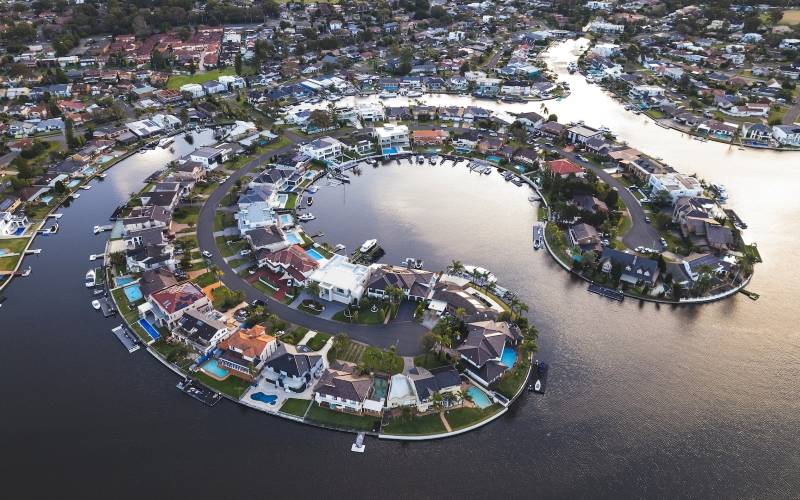Thrifty Aussies are amending their travel plans in 2023 in an effort to save on cash, resulting in an estimated monthly saving of around $392, data from NAB reveals.
The bank found that 85% of us plan to take a holiday this year, in a survey of around 2,000 people.
However, of those, two thirds have cancelled or postponed their trips in the past three months as cost-of-living fears continue to rise.
Meanwhile, around 40% of wanderlusting Australians have scaled back their plans, with many foregoing an international voyage in favour of a domestic trip.
NAB’s findings came from its Consumer Stress Index report, which found fear of living costs rose for a seventh consecutive quarter in the three months to June.
“Just like grocery bills and filling up the car have become more expensive, Australians think holiday plans have become much harder to budget for and they’ve made considered changes to prioritise spending,” said Tara Hartley, NAB's retail customer executive.
“While you might have some FOMO [fear of missing out] from travel pics, it might be reassuring to know you’re not the only one making sensible spending decisions.”
This coincides with NAB spending data, which showed a 4.1% contraction on online retail sales in June.
While the cost-of-living crisis has some holiday-makers “swapping the Mediterranean for Maroochydore or Bali for Burnie”, as per Ms Hartley, many are still taking to the skies to galavant overseas.
More than 830,000 Australian residents left the country for short-term trips in May, according to data from the Australian Bureau of Statistics (ABS).
That marks a 98% jump on the same month of 2022, but a 12% fall on May 2019.
Meanwhile, the ABS’s latest consumer price index (CPI) read found the cost of international travel jumped 6.2% in the June quarter, helping to buoy the inflation rate.
"Higher demand for international travel, particularly to Europe with the start of the European summer peak season, led to price increases,” ABS head of prices statistics Michelle Marquardt said.
“These were partially offset by price falls for travel to South-east Asia and New Zealand as prices dipped following increases during the Christmas and school holiday periods in December and January.”
On the other hand, prices of domestic holiday travel and accommodation offset some of that increase, falling 7.2% over the three months to June.
Though, the cost of domestic travel remained 13.9% higher than it was at the same time last year.
Speaking to the Savings Tip Jar podcast in late May, Peter Dragicevich, currency strategist at Corpay Cross Border Solutions, said the economics of travelling overseas now doesn't make sense.
"Being an economist by trade, you always look for a bit of a bargain and try to travel to the places where you think the exchange rate's in your favour," Mr Dragicevich said.
"If you're a traveller going to Europe or North America this winter ... you're going to be in for a big shock, particularly when you're trying to translate it back into Aussie dollars.
"When I look at the family budget, it's really not the best time to be travelling - particularly not overseas."
Image by Alexandra Tran on Unsplash



 Harrison Astbury
Harrison Astbury
 Harry O'Sullivan
Harry O'Sullivan


 William Jolly
William Jolly

